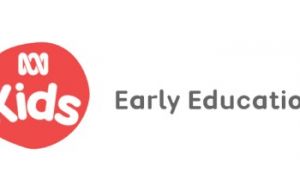

As services prepare for upcoming assessment and rating, educators and leaders often seek clarity on what assessors typically observe, review, and discuss during visits. This article outlines common areas of focus, documentation requirements, and practical considerations to support services in demonstrating quality practice and compliance.
A Quality Improvement Plan (QIP) in early childhood education is a structured approach to assessing and enhancing the quality of care and learning experiences provided to children. It helps childcare providers reflect on their practices, identify areas for improvement, and implement strategies to enhance outcomes.
Writing critical reflections for the National Quality Standards (NQS) in early childhood education involves a thoughtful and systematic approach to evaluating and improving your teaching practices. The following articlr provides information on Steps to Write Critical Reflections For The NQS, Critical Reflection Examples for Quality Area 1 To Quality Area 7 and more.
From July 2024, Early Childhood Education Services will receive 5 days notice for Assessment and Rating.
A key objective of the National Quality Framework is to promote continuous improvement in the provision of quality education and care services. Every service is required to be assessed and rated for quality by regulatory bodies and self-assessment is one of the most important steps in this entire process. Here is a bit more about the importance of self-assessment in the early care and education context.
A service assessment and rating visit is an opportunity to demonstrate the strengths of your service and seek user feedback. It is important to be able to articulate your achievements and practices effectively. The following article provides information on Supporting Educators During The Assessment and Rating Process, Providing Opportunites For Articulation, Using The Right Langauge, Reflecting On Practice and more.
 As an Educator in Australia, your pay rate falls under the Children’s Services Award 2010. This award states the minimum amount that an employer can… Read More
As an Educator in Australia, your pay rate falls under the Children’s Services Award 2010. This award states the minimum amount that an employer can… Read More
 When working as a qualified Early Childhood Teacher (with a university degree) within a service, your rate of pay will come from the Educational Services… Read More
When working as a qualified Early Childhood Teacher (with a university degree) within a service, your rate of pay will come from the Educational Services… Read More
 When working as a Diploma Qualified Educator your pay rate is from the Children's Services Award 2010. This Award states your minimum rate of pay… Read More
When working as a Diploma Qualified Educator your pay rate is from the Children's Services Award 2010. This Award states your minimum rate of pay… Read More
 When working as a Cert 3 Qualified Educator, your pay rate is from the Children's Services Award 2010. This Award states your minimum rate of… Read More
When working as a Cert 3 Qualified Educator, your pay rate is from the Children's Services Award 2010. This Award states your minimum rate of… Read More
 Educational Leaders play a crucial role in their early childhood service by ensuring that the educational program aligns with best practices and supports the holistic… Read More
Educational Leaders play a crucial role in their early childhood service by ensuring that the educational program aligns with best practices and supports the holistic… Read More
 In early childhood education and care, ratios are more than a technicality—they are a frontline safeguard. Every child deserves responsive supervision, emotional connection, and developmental… Read More
In early childhood education and care, ratios are more than a technicality—they are a frontline safeguard. Every child deserves responsive supervision, emotional connection, and developmental… Read More
 Here’s a comprehensive Mobile Phone and Smart Watch Policy tailored for early childhood education and care (ECEC) services in Australia, aligned with the latest 2025… Read More
Here’s a comprehensive Mobile Phone and Smart Watch Policy tailored for early childhood education and care (ECEC) services in Australia, aligned with the latest 2025… Read More
 With the new national child safety reforms kicking in on 1 September 2025, early childhood services like yours have a real opportunity to lead the… Read More
With the new national child safety reforms kicking in on 1 September 2025, early childhood services like yours have a real opportunity to lead the… Read More
 The Sea of Fish Challenge is a national initiative that invites children, educators, families, and communities to create and display fish artworks as a symbol… Read More
The Sea of Fish Challenge is a national initiative that invites children, educators, families, and communities to create and display fish artworks as a symbol… Read More
 Across the early childhood education and care sector, educators are sounding the alarm: current staffing ratios are insufficient to deliver safe, meaningful, and developmentally appropriate… Read More
Across the early childhood education and care sector, educators are sounding the alarm: current staffing ratios are insufficient to deliver safe, meaningful, and developmentally appropriate… Read More

Educators and other staff who are pregnant need to be aware of how some infections...
See more...
ABC Kids has a range of free content for Early Childhood Educators to use with...
See more...
On 21st June, it is International Yoga Day. It is a day to highlight the...
See more...© 2009-2025 Aussie Childcare Network Pty Ltd. All Rights Reserved.
